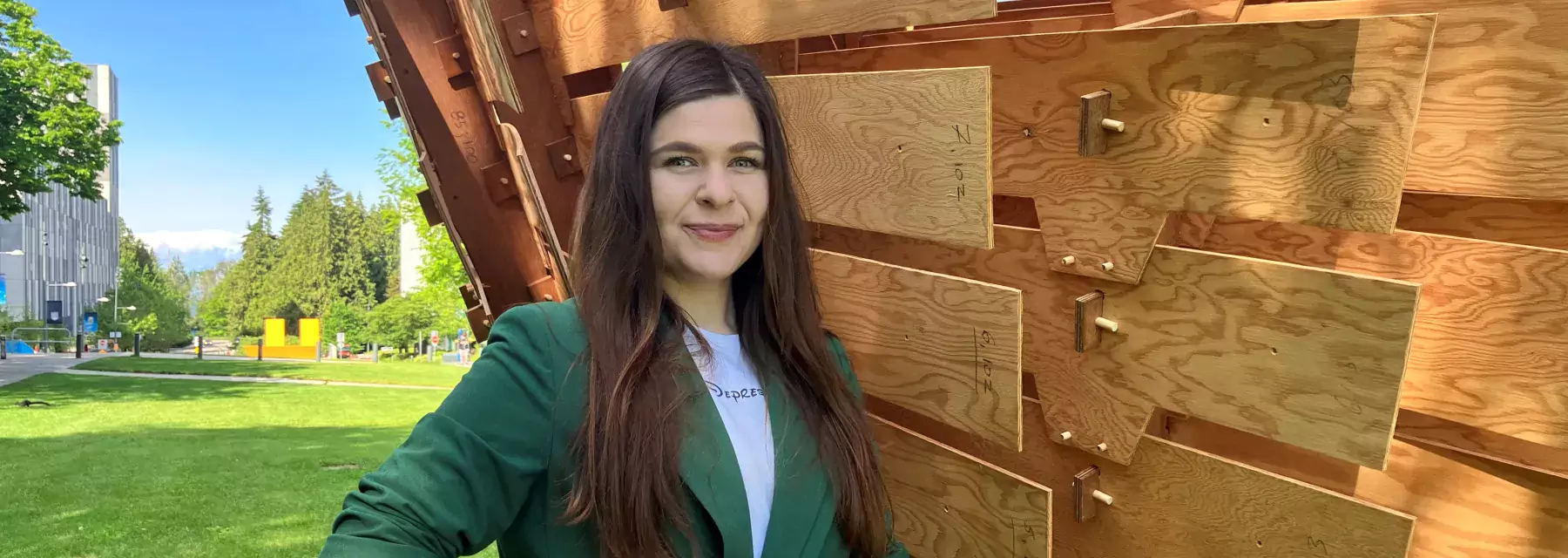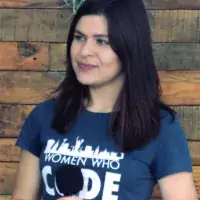
Oksana Kurylo
MDS Computational Linguistics, Class of 2022
Oksana Kurylo’s journey to UBC’s Master of Data Science (MDS) in Computational Linguistics program began when she took a course on Computational Linguistics by Andriy Romanyuk while getting her Master's degree in Applied Linguistics from the Lviv Polytechnic National University.
“It opened a new world of Natural Language Processing (NLP) for me,” said Kurylo.
After completing her Master’s, Kurylo worked as a Computational Linguist and NLP researcher at several start-ups in her native Ukraine.
Eventually, Kurylo knew she wanted to add data science fundamentals to her skill set that would allow her to work with more than just language data.
“As I was not from a computer science background and taking more technical projects, I wanted to get
missing technical fundamentals and broaden my skill set to the data science toolkit,” she added.
This led Kurylo to the MDS Computational Linguistics program.
“I chose MDS Computational Linguistics as it offered a unique combination of data science and NLP courses,” she explained. “Also, a significant role in selecting MDS Computational Linguistics was the capstone project, where you can work on a real business problem with a company.”
She added that her capstone project allowed her to apply all she learned throughout the project and gave her an idea on what it was like to work for an AI start-up.
“I like that my two-month capstone project was like working at a job. Our team had sprint
planning, everyday stand-ups, code reviews, and a weekly Friday demo for the whole company.”
The 10-month length of the program also attracted Kurylo to MDS Computational Linguistics.
If a program like MDS Computational Linguistics were not available to Kurylo, she said she would have ended up taking online Massive Open Online Courses (MOOC) courses.
“Taking different courses from several platforms doesn't provide a concise structure and not always are of good quality. Also, it would take much more time,” she added.
The greatest takeaway from the program, said Kurylo, is having the whole picture of the data science field and hands-on experience in its separate areas.
“Each block of the program builds from basic concepts to more complicated ones. By the end of the program, you start grasping how the whole mechanism works and how effectively and efficiently apply your knowledge to your specific task.”
And, Kurylo likes that she is learning from her diverse cohort.
“It was a valuable experience. I learned how to collaborate, communicate and present my ideas to people from different cultures. These skills will be helpful in any of my future jobs.”
As the program wraps up, Kurylo said that it gave her a clear understanding that she’d like to continue her career as an NLP Engineer or Machine Learning Engineer with a focus on Natural Language Processing.
“I enjoyed learning about cutting-edge techniques in NLP and how to work with low-resource languages. I want to use that pieces of knowledge in my next job,” she added.
Oksana’s Top 3 Tips on Succeeding in the MDS Computational Linguistics Program:
- Time management. The program is intensive. To be able to do all the readings, finish labs on time and succeed in quizzes, you should plan your day and organize your life around the program to help you stay focused.
- Find your people. You will work with different people on different assignments; however, it’s beneficial if you have ‘your’ people to study with, ask for advice, and work on team projects.
- Networking. Attend tech talks, workshops, and partner talks. The easiest way to know about companies is from those working there. They can give you advice and help with job hunting.
